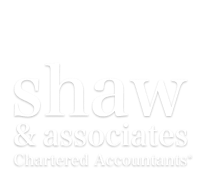Foreign Ownership in Canadian Real Estate: The Underused Housing Tax (UHT)
September 18th, 2023
Posted in: Tax

As of January 1, 2022, the Underused Housing Tax (UHT) became law in Canada. As described by the Government of Canada, “The Underused Housing Tax is an annual 1% tax on the ownership of vacant or underused housing in Canada that took effect on January 1, 2022. The tax usually applies to non-resident, non-Canadian owners. In some situations, however, it also applies to Canadian owners.”
Does It Apply to You?
You may not be affected by this tax; it is mostly directed at foreign owners of Canadian property. Your best bet is to check if you are exempted from the tax or not; the fines for non-compliance are not trivial. Again, per the Government of Canada website, “There are significant penalties if you fail to file an Underused Housing Tax return when it is due. Affected owners who are individuals are subject to a minimum penalty of $5,000. Affected owners that are corporations are subject to a minimum penalty of $10,000.”
You may also be exempt from the UHT if your property is in an eligible vacation area, and you occupy it at least 28 days per year. Canada.ca explains, “Your ownership of a residential property may be exempt for a calendar year if the property is:
a vacation property located in an eligible area of Canada and used by you or your spouse or common-law partner for at least 28 days in the calendar year.”
You may also be exempt from this tax if you meet certain eligibility requirements, like your child residing in the property to attend school. Check with your accountant to see if you are exempt or not—the requirements for exemption are fairly complicated.
Calculating What You Owe
The UHT can be a complicated calculation, according to the government website: “If your ownership of a residential property does not qualify for an exemption from the Underused Housing Tax for a calendar year, you must calculate what you owe for the calendar year.
The tax rate of the Underused Housing Tax is 1%. To calculate what you owe, multiply the value of the residential property by the 1% tax rate. Then multiply that result by your ownership percentage of the property.
There are two ways to determine the value of a residential property. The general rule is to use its taxable value. If you want to use its fair market value instead, you must file an election with the Agency.”
If you decide to use the fair market value approach, you must also get an appraisal done of the property.
The return and also the payment of any tax owing are both due on April 30th of the year following the taxation year.
This video gives a nice overview of what is going on with the UHT.
This Seems Awfully Complicated
That’s because it is. Your best bet is to get in touch with Shaw & Associates to make sure you are in compliance with what the Canadian Revenue Agency is expecting of you.
Contact Shaw & Associates Chartered Accountants for accounting help you can count on. One complimentary meeting with us will put you and your business on a more profitable and positive path.

